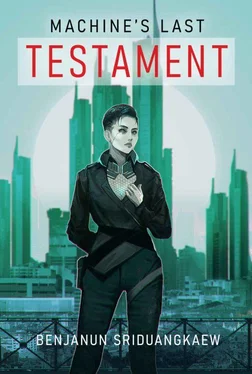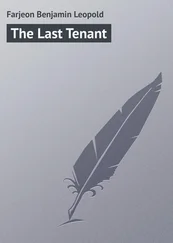There are tasters under trellises, little obelisks that dispense wine and grape juice made from different strains. Some saccharine, some nearly bitter. There are cultivars that taste faintly of pandan, citrus, sake. They go from obelisk to obelisk, their mouths turning sticky. Suzhen keeps her sampling of the wine slight and notices that Ovuha does the same. Even so her feet turn a little lighter and the weight of her body recedes.
“I’ve got this ridiculous urge,” Ovuha says, “to roll in the soil and let it lodge under my fingernails, let the grass stain this gorgeous qipao. Crushed grapes in my hair. It must be something primate. Imagine.”
“Yes.” They are standing beneath ruddy vines and grapes bred to golden luster. She twists off a single grape and rolls it on her palm; it is large, nearly the size of a plum, cool to the touch and unblemished. “The bounty of Anatta.” She bites, careful, as if the fruit bristles with thorns. Even so it splits and yields at once, flesh and juice in her mouth. A note of alcohol under what tastes like caramel, fanged, heady. She swallows quickly, the entire grape disappearing into her mouth.
“Your lipstick.” Ovuha peels off one glove fluidly and wipes at Suzhen’s mouth—at the purported lipstick smudge, at the viscous sweetness. Her thumb hovers and Suzhen knows this moment is a possibility: it suspends. Ovuha will lick her thumb, or bend forward and lick Suzhen’s lips clean, pigment and grape both. There would be nothing to hold on to, no wall to support or steady them, only one another.
Ovuha lets her hand fall. “Vipada’s coming this way.”
Something like fury, something like relief. Suzhen composes and tidies herself as best she can. She doesn’t reapply lipstick, it is futile in any case. Vipada has already seen, borne witness to this compromising tableau.
Not that she has paid attention—to Vipada, if Suzhen wishes to drink wine out of her companion’s mouth in public, that is routine rather than scandalous. The actor is striding toward them, gold and bronze billowing behind her, in full sail. “Ovuha! I just remembered where I saw you from. Or your face at any rate. Sorry to interrupt, but this is a little important. Ovuha, do you know Doctor Dahaan?”
“The name’s not familiar.” Ovuha’s stance and expression are noncommittal, but Suzhen has seen enough to know Ovuha has tensed up: a hard line along the jaw.
“Surgeon,” Vipada says with emphasis, as though that might jog Ovuha’s recall. “He was a potentiate—from Vaisravana, before it was liberated? Exceptional at what he did, I once thought of having my face remodeled and was going through his catalogue. A physical volume! Paper, you know, so quaint and old-fashioned. I glimpsed a unique blueprint briefly; he closed it fast and said that was private work, not available to anybody however much they offer. My memory’s eidetic, though.”
Ovuha’s head twitches, just a fraction. “Is that so.”
The actor waves her hand. “I can see why you wouldn’t admit to it, but rest assured I’m not going to spread it around or anything. He was arrested for being a subversive, and one must distance oneself. Don’t worry, a face is just a face and yours is spectacular, catalogue or natural. The reception’s starting soon, would you come join us?”
Ovuha makes a noise of agreement but it is autopilot, meaningless. She is wooden as they follow Vipada back to the wedding.
Suzhen feels no better. Nausea in the pit of her stomach. She knows there was no Doctor Dahaan from Vaisravana under any name, no magician of the face who could have created the features draped onto Ovuha’s skull. The perfidy of coincidence and Bhanu, despite everything, proven right.
Suzhen in her office, her seat of judgment: who is accepted, who is not. Decision like a noose, an iron weight. It is not an authority that should ever have been left to human hands.
Can you explain this , she asked, any of this . She had already accepted that Ovuha was not who she seemed. But to modify her face entirely: she was more than a foot soldier, more than an instrument. She commanded, one way or another.
Ovuha was quiet as she shed her gloves and wiped off the makeup. Dark pigments in rivulets. I could, but you will believe very little of it, if any . Then: I hope I have not brought too much trouble upon you.
A foregone conclusion, a farewell. There was no effort to hedge, to dismiss Vipada’s memory as faulty. There was no offer of excuses.
Before, having Ovuha transferred was virtuous, a statement—if only to herself—that she would not abuse her position. Now it is a different decision; now it is cowardice. To avoid the contagion of guilt by association, however remote. It would mar her record to transfer a potentiate she’s sponsoring, perhaps an outright blot if Ovuha’s secret comes out later. But it would still save her. Survival tactics. And of course she does not owe Ovuha refuge. Too much has been done for her by her mother, by Bhanu. By the Mirror. All to ensure that she continues. She is an accumulation of sacrifices.
She thinks of contacting Bhanu, admitting her naivety—her idiocy—but he can do nothing for her. This she will need to navigate herself.
There is a limited number of caseworkers, more limited still once narrowed down to those willing to sponsor. Some agents work as agents only, in the office, without tending to individual cases. Creatures of the desk, she calls them behind their back, a species apart. Scrolling through who is available in the precinct she finds Rachel Luo’s caseworker and Nattharat, then a handful more that she doesn’t know. She wonders often why Nattharat is not a creature of the desk. Perhaps up-close contact lets Nattharat feel more thoroughly superior, more fortunate, more . Suzhen looks into the other available agents, searching for misconduct complaints, not that those can be relied upon. Few potentiates can afford honesty; all are ready to name their caseworkers deities of mercy, bodhisattva incarnate.
Suzhen turns her query to Doctor Dahaan. Dahaan Seong. On record as from Vaisravana, once domain of the Mirror. Dahaan arrived on Anatta nine years ago, Ovuha arrived just last year: none of it lines up. But then it wouldn’t.
Dahaan was arrested on charges of treason against Samsara: failure to disclose his background and giving succor to subversives. That was six years past. She summons his ghost, searching the planes of his features, looking for the familiar. Nothing. It is just a man, long-necked, high-breasted. At the time of his execution, he was gray and haggard.
The records say that he gained easy admission, enjoyed truncated probation, became a citizen within two months on strength of his skills. He must have operated on himself before departing wherever his true home was, perhaps Gurudah, perhaps somewhere else entirely. What is certain is that no one possessed this expertise on Vaisravana or they would have been drafted into modifying her mother, Suzhen, and Bhanu. Maybe even the Warlord of the Mirror might have survived, given a different face. All that could be done was slight alteration, bone structure here and there. Nothing like remaking the face entire, skull remolded and epidermis rebuilt from the ground up: redistributing muscle, fat, nerves. Shifting even the positions and width and angle of eye sockets.
Her clearance gives her an overview of the surgeon’s crimes, supposed or actual, and she doesn’t try for more. Already her query would be logged, taken into account. Her conversations with Ovuha: those too would be reviewed, if it comes to that. She may be too late, has been too late since she agreed to sponsor Ovuha.
Suzhen breathes out. Closes Dahaan’s profile. A corpse among countless corpses: he cannot help or hinder her. She can prepare a convincing story; her guidance has recorded her moods, it would testify as to her recent stress, her telling Vipada that she thought of quitting. All of that suffices as reason to transfer her potentiate. She simply has to go through the procedure, select her successor. Successor, as if she’s turning over authority rather than trouble. Though she is doing that as well, control of Ovuha’s existence.
Читать дальше












